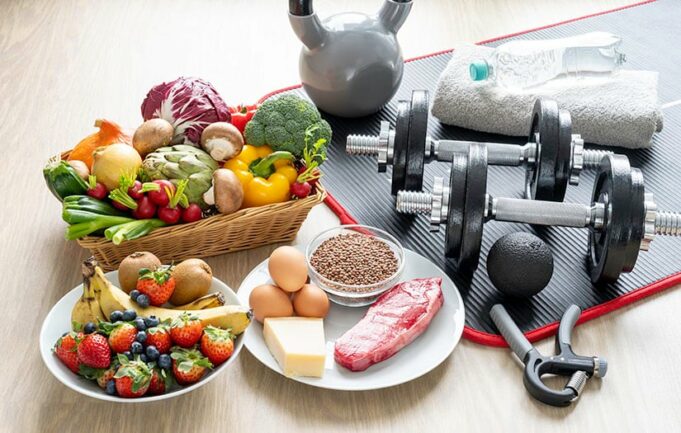Nutrition and fitness are two peas in a performance pod. Both components are crucial for anyone keen on optimizing their physical performance, whether you’re an athlete or a fitness enthusiast. While post-workout nutrition often grabs the limelight, understanding the ins and outs of pre-workout nutrition is equally vital.
Athletes and fitness enthusiasts understand that proper nutrition is a critical component of athletic performance. It’s the fuel that drives their strength, endurance, and recovery. Many successful athletes, fitness enthusiasts, and over a thousand professional and collegiate athletic teams trust the power of meticulously formulated products, such as those offered by Honey Stinger. These products offer a balanced mix of carbs, fats, and proteins to cater to their nutritional needs at each stage of exercise.
One prevalent nutritional strategy method divides any active person’s needs into three categories: Prepare, Perform, and Recover. This guide is going to focus primarily on the ‘Prepare’ phase and delve into how proper pre-workout nutrition can elevate performance. Understanding the power of a well-balanced, delicious blend of carbs, fats, and proteins before a workout session can be game-changing for your fitness journey.
Understanding Pre-Workout Nutrition
Before going into the specs of what to consume before a workout, it’s essential to grasp why pre-workout nutrition is crucial. Pre-workout nutrition primarily revolves around consuming nutrients that optimize your workout performance and minimize muscle damage. It’s all about giving you the right fuel it needs for a successful and effective workout.
Not only does a well-planned pre-workout meal or snack boost your energy during the workout, but it also reduces muscle protein breakdown, improves recovery, and increases muscle performance. Additionally, pre-workout nutrition can significantly determine how well you can concentrate and perform physically. Ultimately, the goal is to feed your body with the good nutrients at the right time to enable it to function optimally during exercise.
Carbohydrates: Your Body’s Preferred Energy Source
When it comes to physical activities, carbohydrates are your body’s favorite source of energy. The consumption of carbohydrates results in their conversion into glucose, which is a sugar form that circulates in your bloodstream. Your muscles then use this glucose for energy.
Consuming carbohydrates before your workout can offer you a readily available energy source. When you consume carbohydrates, they get stored in your muscles as glycogen. When you begin training, your body turns to this glycogen for energy. Therefore, having a carbohydrate-rich pre-workout meal can help ensure your glycogen stores are well-stocked for your upcoming workout. This energy availability is particularly advantageous for high-intensity workouts, where your body predominantly relies on glucose for fuel.
Protein: Supporting Muscle Health
While protein may not serve as a primary source of energy, it plays a main role in muscle health and recovery. Consuming protein before a workout can offer your muscles the essential amino acids required for protein synthesis, a vital process that leads to muscle growth and repair.
During exercise, especially strength and resistance training, your muscles undergo significant stress leading to micro-tears. Consuming protein pre-workout can help initiate recovery even before you finish your workout. Amino acids from the protein get to work by repairing these micro-tears, which helps build bigger and stronger muscles.
Further, a pre-workout protein intake can also help reduce muscle protein breakdown during exercise. When combined with post-workout protein consumption, this positive protein balance leads to effective muscle recovery and growth.
Fats: The Fuel for Longer Workouts
While carbohydrates take center stage for immediate and quick fuel, fats have their place in the spotlight as the go-to source for sustained energy release. They’re especially useful for longer, lower-intensity workouts where energy needs to be released over an extended period.
Fats function as an energy reserve in your body. When carbohydrates deplete during a long workout session, fats step in to provide that much-needed energy. They deliver more than double the energy per gram compared to carbohydrates and proteins, making them a fantastic fuel source for endurance exercises.
Incorporating a moderate amount of healthy fats in your pre-workout meal can provide lasting energy, especially for endurance activities. However, one should remember that fats take longer to digest than proteins and carbohydrates. To avoid digestive discomfort during your workout, consume fats well before your training.
The Timing of Pre-Workout Nutrition
Effective pre-workout nutrition is as much about ‘when’ as it is about ‘what.’ The timing of your pre-workout meal or snack can significantly influence your workout performance and energy levels. Generally, consuming a meal rich in carbohydrates, protein, and a little fat 2-3 hours before your workout is recommended. This timeline allows your body to digest the food and absorb the nutrients, ready to be utilized during exercise.
However, we all know life doesn’t always go according to plan, and you might not always have the luxury of time. If you can’t manage a full meal, or if you’re looking for an additional energy boost, a smaller snack 30-60 minutes pre-workout could work wonders. This snack should ideally be rich in carbohydrates for quick energy and a moderate amount of protein to support muscle health.
Hydration: A Key Element of Pre-Workout Nutrition
It’s easy to overlook hydration when discussing pre-workout nutrition, but it’s a critical component that deserves attention. Beginning your workout well-hydrated can help ward off dehydration during exercise, which could negatively impact performance and potentially be detrimental to your health.
Aim to consume plenty of fluids in the hours leading up to your workout. Water is your best bet here, but consider a sports drink if you’re heading into an intense or long-duration workout. These drinks can provide hydration and carbohydrates for energy, and electrolytes to replace what you lose through sweat.
Individualizing Your Pre-Workout Nutrition
When it comes to pre-workout nutrition, remember that there’s no one-size-fits-all approach. Your ideal pre-workout meal or snack depends on a range of variables, including your individual goals, the type and duration of exercise, and personal tolerance to food. The beauty of nutrition is its flexibility; it allows for customization based on individual needs and preferences.
You might find that a carbohydrate-heavy meal works best for you before hitting the treadmill, or perhaps a protein-rich snack suits your strength training regimen. Pay attention to how your body reacts to different foods and timing. This self-awareness can guide you in tweaking your pre-workout nutrition strategy to optimize performance and recovery. Consulting with a sports nutritionist or a dietitian can also provide personalized guidance based on your specific goals and lifestyle.
Conclusion: The Power of Pre-Workout Nutrition
In conclusion, adequate pre-workout nutrition is a formidable tool for fitness performance. By properly fueling your body with the right nutrients at the correct times, you equip yourself to tackle your workout, support your body’s needs, and progress toward your fitness goals.
Being mindful of your pre-workout nutrition primes you for the session ahead and puts you one step closer to your health and fitness goals. Embrace the power of pre-workout nutrition and elevate your performance to new heights.












